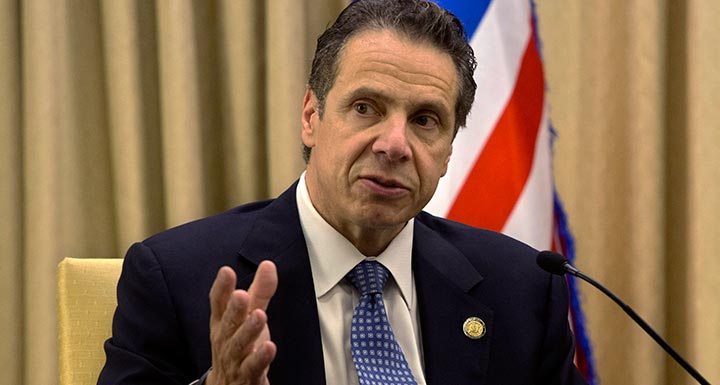
Cuomo’s trip to Cuba changes the debate
Andrew Cuomo is not the most likely elected official to advance discussions about normalizing relations with Cuba. But his trip this week, accompanied by some state Democratic leaders and including some New York companies that see business opportunities, certainly has everybody talking.
The governor, who has prided himself on his business-like approach to governing, might have avoided the most sensitive topic involved, the dismal record of human rights under the rule of the Castros. Any business, any business-courting politician, avoids controversy when possible. But it is impossible to talk about Cuba, let alone to visit the island, without acknowledging this controversy, and Cuomo decided that he would meet it head-on.
Before he left he issued a lengthy statement about the hopes for future trade relations and business opportunities for New York state. When it comes to human rights, he had a direct rebuttal to those who say there should be no easing of the boycott, no other concessions, until the regime relinquishes its grip.
Only by dealing with and trading with Cuba, as it does with other repressive governments around the world, the governor said, can the United States hope to make a difference: “The U.S. shift in policy recognizes that engagement is far more likely to lead to change in policies we disagree with.”
That is more than a diplomatic nicety. It puts the governor, and by extension the state he leads, on the side of the Obama administration in deed as well as word, agreeing that having failed with a half a century of boycotts and embargoes, it is time to try something else.
“Our trade mission is part of that new engagement,” the governor said. “New York has proudly long been a leader on issues of equality and human rights and I agree with the president that engagement is the best way to promote democracy and bring about positive change, rather than continuing a failed policy of isolation.”
New York is not Miami. While there is opposition among those whose families left Cuba to engaging with the Castros before they make concessions, that community does not hold the political power it does elsewhere.
Besides, Andrew Cuomo is more interested in courting another sector for support: the businessmen who see Cuba as a market for products and services. The governor brought along the CEOs of JetBlue and Chobani Greek Yogurt and executives from Pfizer, biopharmaceutical company Regeneron and a Finger Lakes dairy company.
That group envisions a day in the near future when Cubans are eating New York apples and dairy products, when tourists from New York or traveling through its airports are headed to Havana for a vacation.
They don’t want to miss this opportunity, and by joining the governor they have made the political statement that we are more likely to help the people of Cuba by trying this new approach than we are by waiting for the old approach to finally work.
Look at the roster of leaders accompanying him on this trip and you see how the future of this debate will be framed, not only in New York but around the country.
(From: Record Online)

